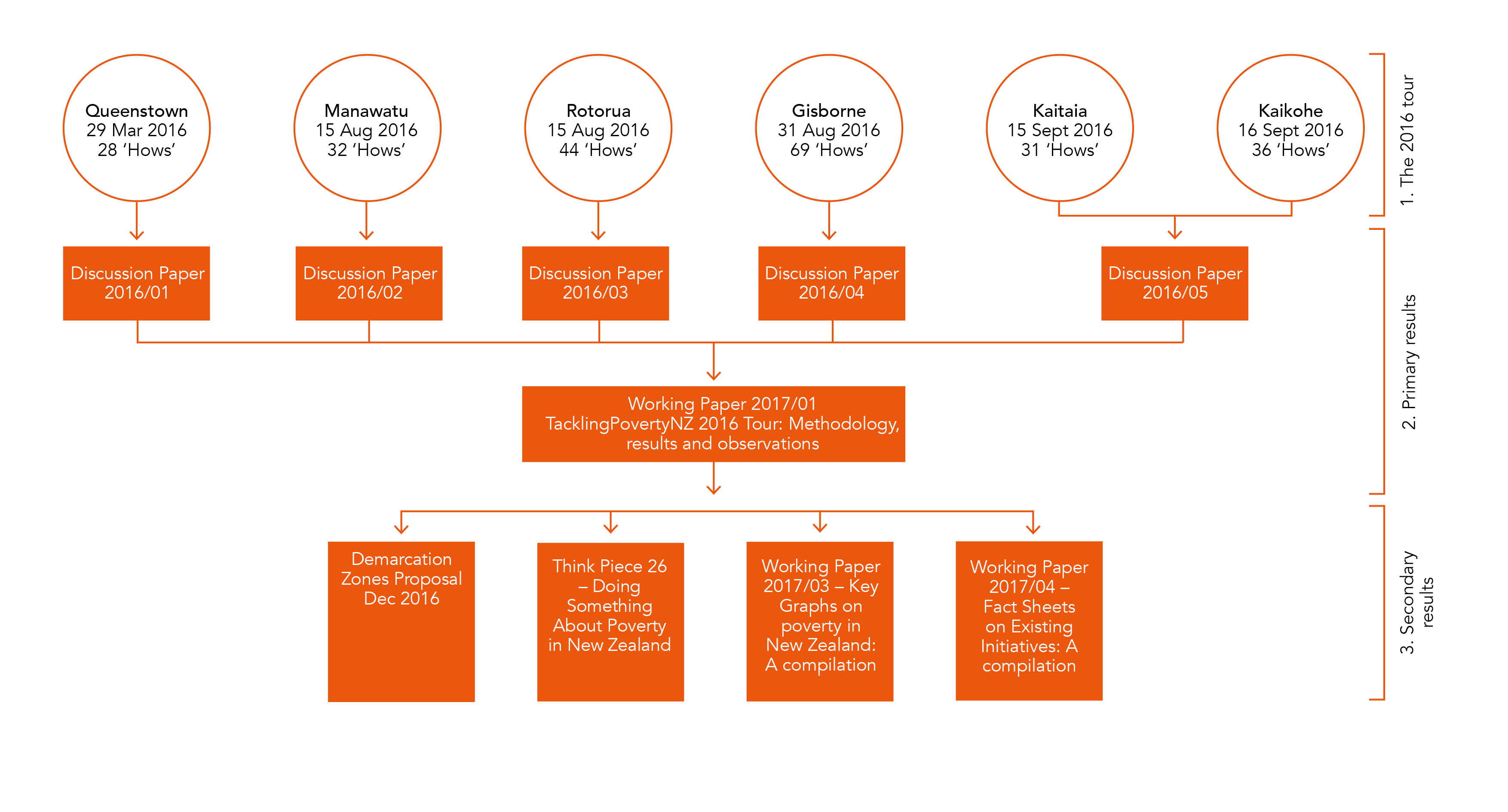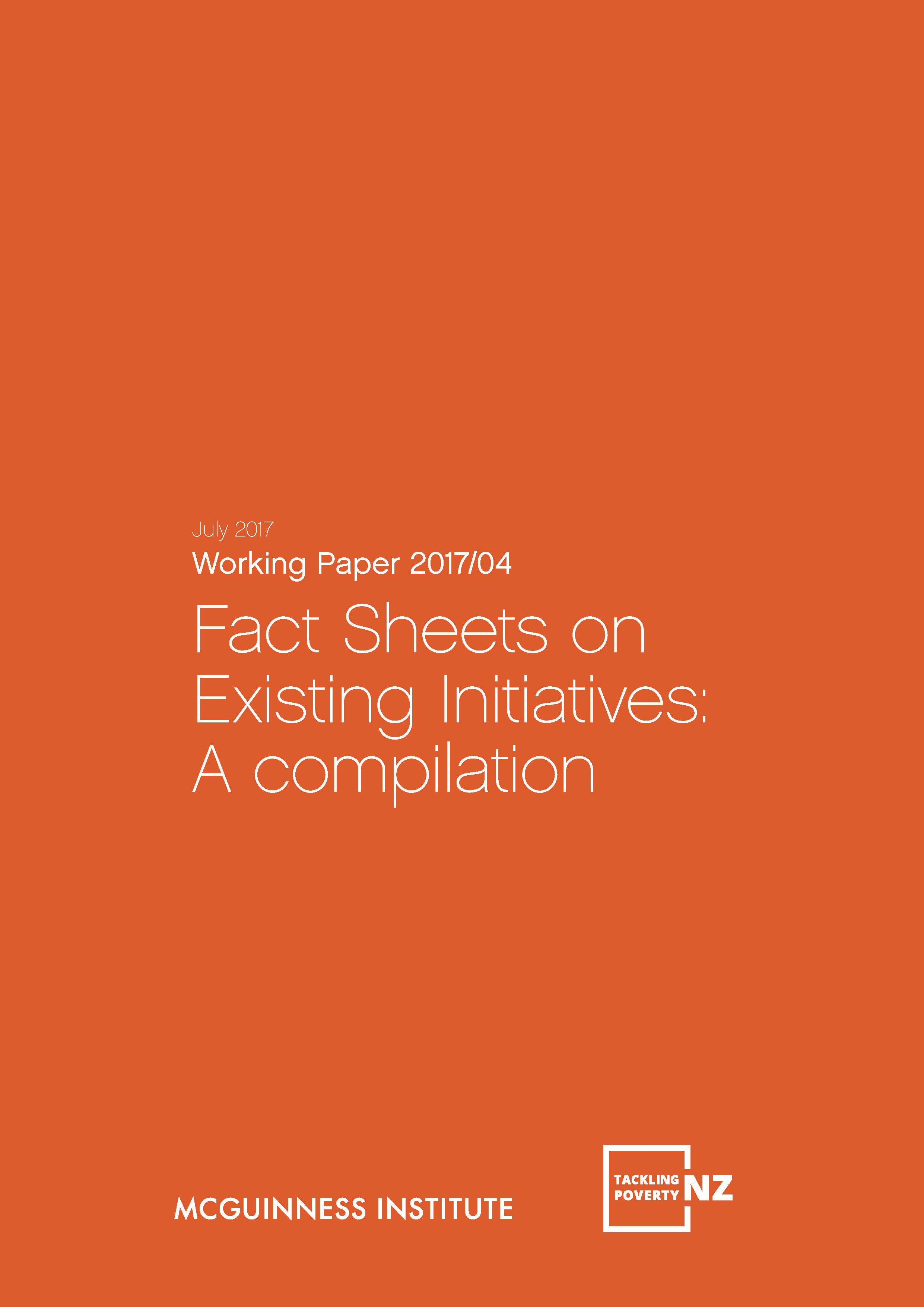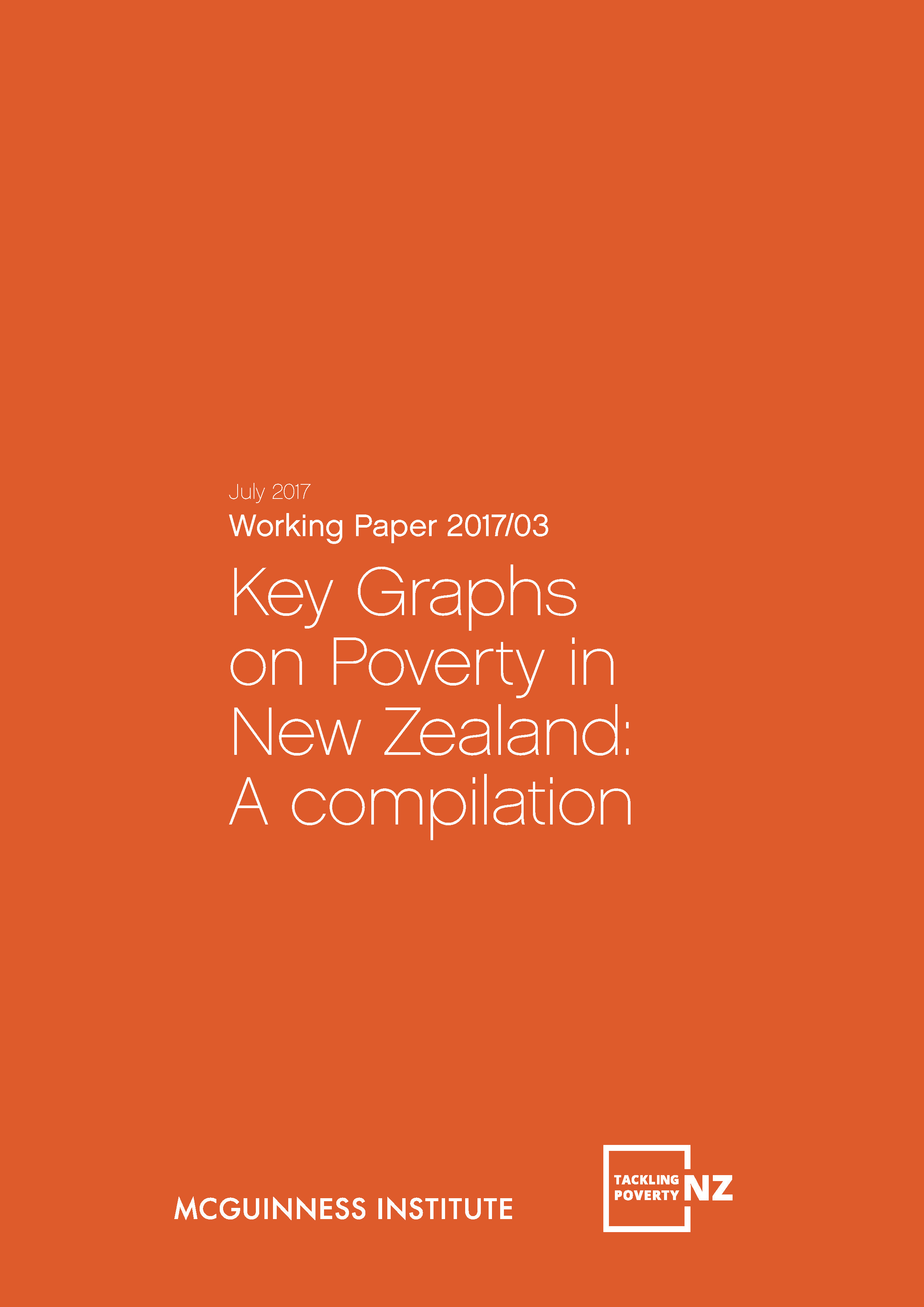Purpose
The TacklingPovertyNZ initiative aims to contribute to a national conversation on how to reduce poverty in New Zealand.
The diagram below maps our TacklingPovertyNZ publications bringing together the outputs of the 2016 regional workshops and other research from throughout 2017.
 2018 promises to be an interesting year for TacklingPovertyNZ considering the portfolio of Prime Minister Jacinda Ardern as Minister for Child Poverty Reduction and the strong focus of the current government on these issues. We look forward to finding ways to work together to address this issue and strengthen New Zealand to face the challenges and opportunities ahead.
2018 promises to be an interesting year for TacklingPovertyNZ considering the portfolio of Prime Minister Jacinda Ardern as Minister for Child Poverty Reduction and the strong focus of the current government on these issues. We look forward to finding ways to work together to address this issue and strengthen New Zealand to face the challenges and opportunities ahead.

Submission to the Tax Working Group on the Future of tax
This submission outlines our recommendations for designing a tax system fit for the future. The submission draws on our work from a number of projects including ReportingNZ and TacklingPovertyNZ. Significant recommendations include introducing water taxes and strengthening the strategy and reporting of IRD in order to better understand the aims and strategies driving the tax system.
WellbeingNZ Proposal to MSD’s The Generator
The Institute prepared a proposal in response to the Ministry of Social Development’s (MSD) initiative The Generator. Although the proposal was not accepted, the Institute is committed to working with members of the proposed consortium to build on the TacklingPovertyNZ
Demarcation Zones Proposal (found here). The full WellbeingNZ Generator proposal can be read on our website here.
 Working Paper 2017/04 – Fact Sheets on Existing Initiatives: A compilation
Working Paper 2017/04 – Fact Sheets on Existing Initiatives: A compilation
This working paper brings together a compilation of fact sheets intended to explore the landscape of existing initiatives that target poverty in New Zealand and the UK. The fact sheets cover a variety of existing initiatives in New Zealand, such as placed-based initiatives, Whānau Ora and Contract Mapping, as well as information on the Greater Manchester Experiment and the UK Estate Regeneration Fund, which are experimental policy reforms in the UK. It is our intention that this information will allow New Zealand to learn from existing achievements and criticisms, applying knowledge to our own work where possible. Read the working paper here.
 Working Paper 2017/03 – Key Graphs on Poverty in New Zealand: A compilation
Working Paper 2017/03 – Key Graphs on Poverty in New Zealand: A compilation
This working paper brings together an extensive range of existing research on poverty in NewZealand. It collates a diverse group of figures and tables from the research of others that the Institute considers to be both informative and interesting. The focus of this paper is on New Zealand, although we have added some comparative data and some uniquely international data. In the latter case, these are provided as examples of the type of research that might be interesting going forward. The purpose of this working paper is twofold; to provide a clear and accessible compilation of all the informative data that we have come across in our research on poverty, and to contribute to an informed discussion about issues of setting goals and measuring performance in addressing poverty. Specifically, this paper indicates, in graph form, which groups in society are affected by poverty and how. Read the working paper here.

Think Piece 26 – Doing Something About Poverty in New Zealand
This think piece discusses what can be done, putting forward seven proposals to address poverty in New Zealand. The seven proposals were identified from the 240 ideas that emerged from the 2016 TacklingPovertyNZ workshops. They reflect themes or suggestions that were repeated across the workshops and which, if implemented, would represent a significant change in how New Zealand addresses poverty. These are to
- simplify and standardise the benefit system,
- introduce special demarcation zones in regions of high need,
- revisit the role of the state as employer of last resort,
- apply a social investment approach to investment in ‘hard’ regional infrastructure,
- invest significantly in mental health,
- target the behavioural drivers of poverty, and
- introduce asset-based assistance for high-risk children.
Read the full think piece on our website.
